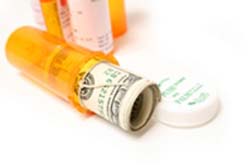Psychiatric diagnoses prone to abuse
“…psychiatric diagnosis is not based on pathological criteria. The closest the article comes to addressing this problem is the statement that “Even in the best clinical scenario, a psychiatric diagnosis is tricky, experts say; doctors have no X-rays to help apply the criteria defining a mental illness” Richard E. Vatz, Professor of Political Rhetoric, Towson University




SHARE YOUR STORY/COMMENT: